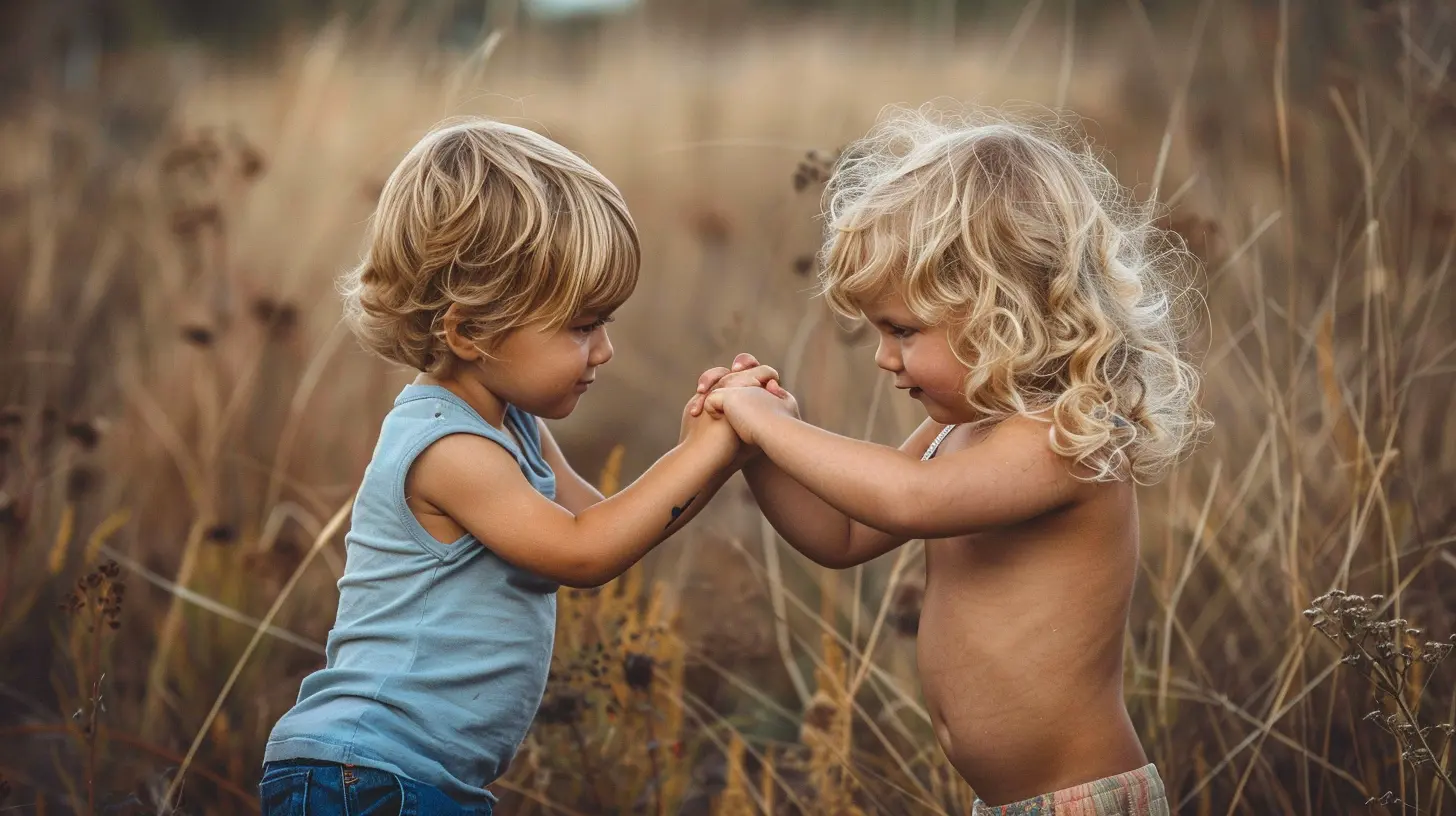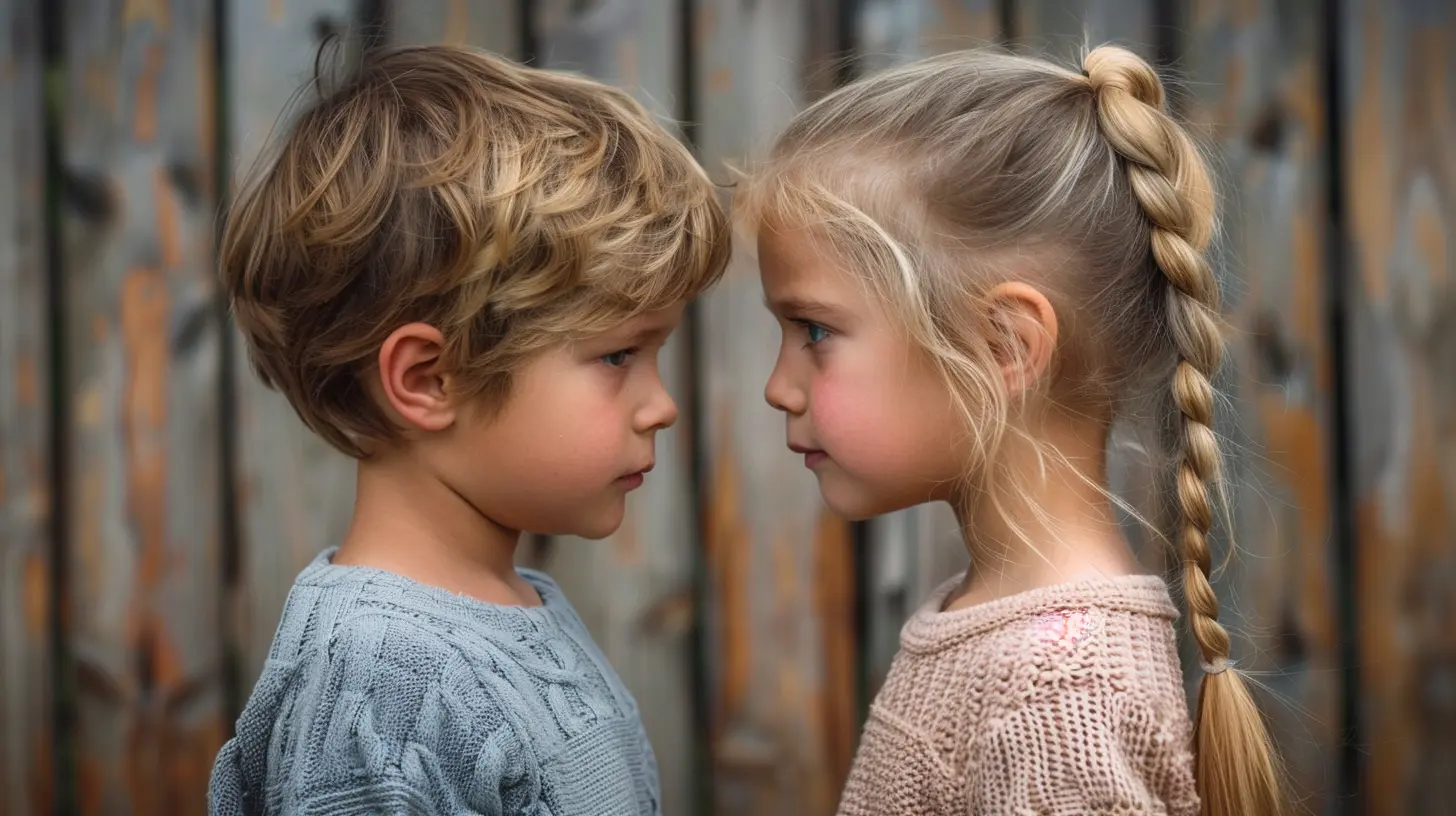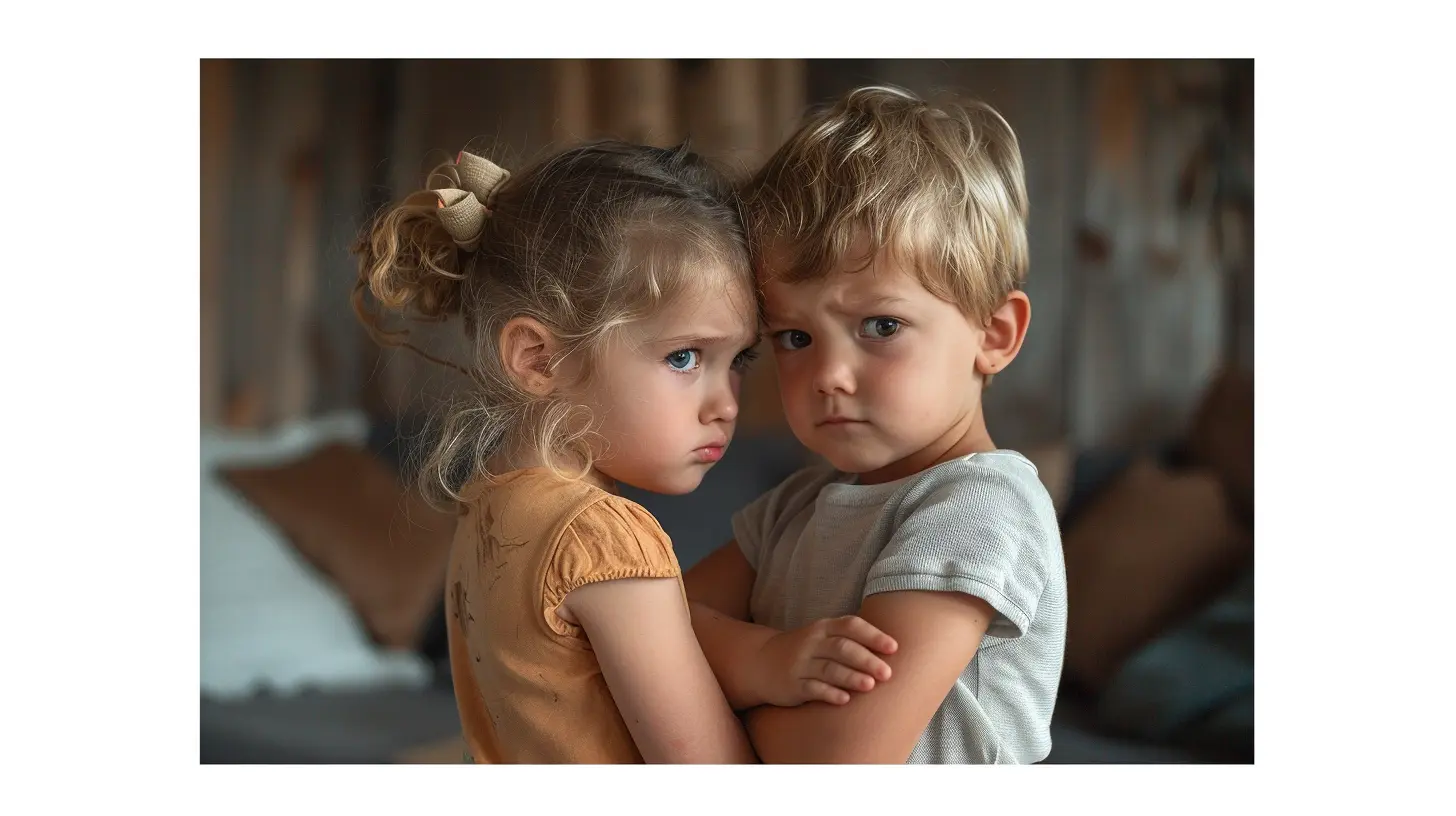Teaching Cooperation Over Competition Among Siblings
7 November 2025
Let’s be real for a second: Parenting more than one child is kind of like juggling flaming torches—while blindfolded. If your days are filled with cries of, “That’s mine!” and “I got there first!”, you’re not alone. Sibling rivalry is nearly as old as time (remember Cain and Abel?), but that doesn’t mean we’re doomed to a lifetime of refereeing.
So, what if I told you there's a powerful mindset you can gently instill in your kids that makes your home quieter, your heart fuller, and your patience a lot less tested? Yep, it's all about teaching cooperation over competition among siblings.
Let’s dig into this parenting goldmine together—because if we can get siblings working with each other instead of against each other, we’re winning.
Why We Naturally Lean Toward Rivalry
Before we start solving the problem, let’s talk about why it even exists. Kids aren’t born knowing how to be team players. They’re born crying for attention, love, milk, and more attention. And as soon as a sibling enters the picture, guess what? That spotlight is now shared. Cue the turf war.It doesn’t help that society often cheers the loudest for those who win. Whether it's in academics, sports, or even who gets the last cookie, our kids are constantly exposed to “me first” messages.
But here’s the kicker—humans are also wired for connection, empathy, and collaboration. We just need to water those seeds a little more.
The Big Perk of Cooperation: It’s a Life Skill
Cooperation isn’t just about preventing toy squabbles. It’s about giving your kids long-term tools for:- Conflict resolution
- Teamwork
- Emotional intelligence
- Patience
- Communication
So yeah, teaching cooperation isn’t just keeping your sanity intact at home—it’s molding mini humans into awesome adults.
How To Spot Sibling Competition (Even When It’s Subtle)
Sometimes sibling rivalry is loud and proud—shouting matches over a controller, who got the bigger scoop of ice cream, or who finished their chores faster.Other times, it’s sneakier. Ever notice one child constantly trying to “one-up” the other in casual conversation?
“Look, Mom! I got an A!”
“Yeah, well I got an A+!”
Small digs like that can create emotional distance over time. That’s competition in disguise.
The first step to flipping the script? Start noticing. Awareness is your parenting superpower here.
1. Praise Teamwork Over Solo Achievements
We all love to trumpet our kids’ individual wins—“Wow, Emma read an entire book!” or “Liam scored the game-winning goal!”But here’s a little twist: Next time they work together, blow that trumpet even louder.
Try this:
"That was amazing how you two cleaned your room together without me asking!"
or
"I saw how you helped your brother find his toy before looking for your own. That’s team spirit, and I’m proud of you both."
Over time, your kids will start to seek approval through collaboration instead of competition. It's all about what they think you value most.
2. Create Opportunities That Require Team Effort
Kids are naturally inclined to compete when they’re pitted against each other. So let's flip the script and set the stage for cooperative challenges.Try some of these fun ideas:
- Build a fort together using couch cushions and blankets.
- Have a sibling scavenger hunt where they can only win by working as a team.
- Bake cookies as partners, with one measuring and the other stirring.
The trick is to design situations where success hinges on teamwork. That way, the message is loud and clear: “We get further when we work together.”
3. Ditch the Comparisons (No Matter How Innocent They Seem)
It’s sooo tempting to say, “Why can’t you act more like your sister?” Especially in moments of frustration. But that one line can do a lot more harm than good.Even well-meaning praise can backfire. “You ate all your veggies like a big boy—unlike your brother who’s still playing with his peas.”
Oops—sibling rivalry, table for two.
Instead, keep feedback individualized. Praise each child for what they’re doing without setting them against each other. Basically, don’t make love feel like a competition.
4. Emphasize Fairness Over Equality
Here’s a little truth bomb: Fair doesn’t always mean equal.If you’ve got one kid who needs new shoes because theirs have holes and the other still has perfectly fine sneakers, it’s okay to buy for one and not the other right now.
Just help your children understand that fairness means everyone gets what they need, when they need it.
Explain it like this:
“If someone scrapes their knee, I give them a Band-Aid. It doesn’t mean everyone gets one.”
This mindset prevents the “He got more than me!” spiral and encourages understanding over scorekeeping.
5. Model Cooperation in Your Own Relationships
Kids are the best little parrot-mimics around. They watch everything you do—and I mean everything. That means your marriage, friendships, and interactions with strangers are teaching tools in disguise.Show them:
- How you and your partner divvy up chores.
- How you resolve disagreements without slamming doors.
- How you help a neighbor carry groceries without expecting anything in return.
When cooperation becomes their “normal,” they won’t think twice about doing the same with their siblings.
6. Use “We” Language (It’s More Powerful Than You Think)
Language shapes how we think. It’s subtle, but powerful. So instead of saying:“Go help your sister do her homework.”
Try:
“Let’s see how we can figure this out together.”
Simple swaps like “we” and “team” help build unity. It turns “me vs. you” moments into “us vs. the challenge” ones.
Words matter. Use them like glue that sticks their hearts together.
7. Celebrate Shared Wins
Have a little family ritual around celebrating shared victories.Maybe they:
- Cleaned up their room together
- Finally stopped arguing over who gets the first turn
- Worked together on a school project
Celebrate it! Ice cream dance party? Movie night? High fives and extra bedtime stories?
When teamwork equals rewards, it becomes a habit they’ll want to repeat.
8. Teach Emotional Literacy
Sometimes rivalry comes from a place of feeling misunderstood, ignored, or jealous. Let your kids know it’s okay to feel those things—but they need help expressing it in healthy ways.Give them the words:
- “I felt left out when you played without me.”
- “I got upset because I thought you liked his picture more than mine.”
You’re not just raising siblings. You’re raising emotionally intelligent humans who understand that feelings don’t have to lead to fighting.
9. Make Alone Time Special (For Each Child)
This might sound counterintuitive, but hear me out: When each child feels secure in your love and attention, they don’t need to fight for it.Set aside mini one-on-one dates with each kid—even if it’s just 15 minutes reading or a kitchen dance party while the other naps.
Affection in abundance reduces the hunger for attention. And less hunger = fewer battles.
10. Normalize Mistakes and Celebrate Growth
No kid is going to suddenly become the poster child for peace overnight. (Let’s be honest, neither are we as parents.)So when they mess up—argue, tattle, or try to outdo each other—use it as a teaching moment, not a guilt trip.
Try saying:
“Hey, I saw that you were trying to make your sister feel bad by saying your drawing was better. Can we think of a kinder way to share how proud we are?”
It’s not about perfection. It’s about shaping values, one little moment at a time.
Final Thoughts: Cooperation Is the Real Win
Teaching siblings to cooperate doesn’t mean they’ll never fight again. Heck, I still have disagreements with my own siblings as adults. But it does mean you’re giving them a lens to see each other as teammates—not adversaries.And when your kids see that they can count on each other, lean on each other, and share life’s victories and setbacks together—it’s one of the greatest gifts you’ll ever give them.
So, yes. You’re not just mediating minor squabbles. You’re shaping a mindset that could ripple through your family tree for generations.
Now, how’s that for parenting impact?
all images in this post were generated using AI tools
Category:
Sibling RivalryAuthor:

Austin Wilcox
Discussion
rate this article
1 comments
Finn McGill
Here’s to fostering teamwork in our little ones! Remember, cooperation today builds bonds for life. Let the sibling adventures begin!
November 7, 2025 at 5:36 AM

Austin Wilcox
Absolutely! Fostering teamwork in siblings lays the foundation for lifelong relationships. Here's to many adventurous moments together!


